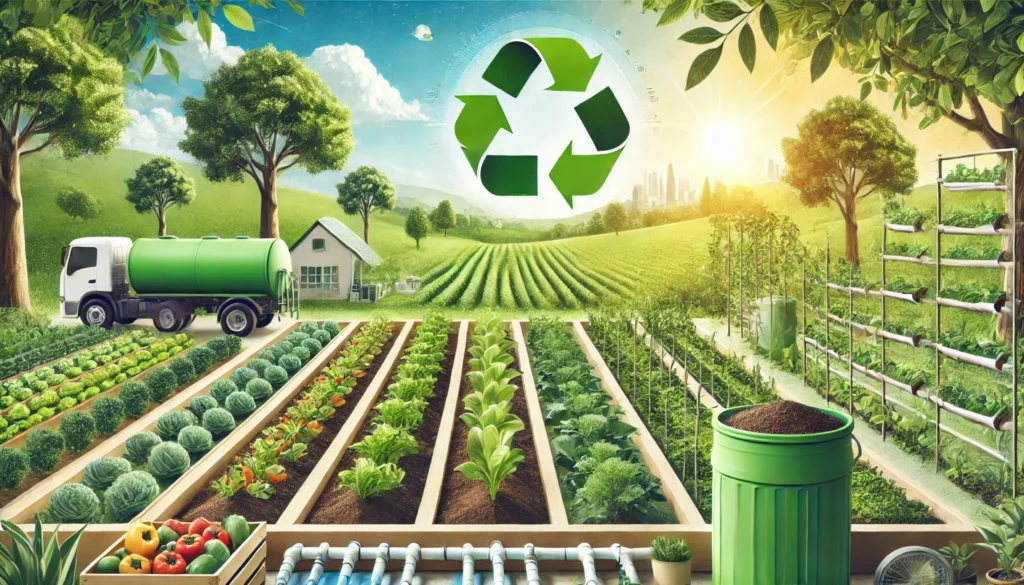Introduction
As climate change accelerates, the need for sustainable solutions becomes more critical. Organic farming has emerged as a powerful tool in the fight against global warming, offering environmentally friendly practices that reduce carbon emissions, conserve biodiversity, and promote soil health. This article explores how organic farming helps combat climate change and why it’s essential for a sustainable future.
1. Reducing Greenhouse Gas Emissions
Organic farming reduces the use of synthetic fertilizers and pesticides, which are significant contributors to greenhouse gas emissions. By avoiding nitrogen-based fertilizers that release nitrous oxide, a potent greenhouse gas, organic farming minimizes the carbon footprint.
Key Benefits:
- Less reliance on fossil fuels for synthetic fertilizers.
- Reduced nitrous oxide emissions from soil.
2. Promoting Carbon Sequestration
Healthy soil plays a critical role in capturing carbon dioxide (CO2) from the atmosphere. Organic farming encourages practices like composting, mulching, and cover cropping, which increase soil organic matter and enhance carbon sequestration.
Soil Improvement Techniques:
- Cover Cropping: Planting cover crops improves soil structure and promotes carbon storage.
- No-Till Farming: Reduces soil disturbance, preventing carbon release into the atmosphere.
3. Improving Soil Health and Water Retention
Healthy soil retains more water, reducing the need for irrigation and mitigating the effects of droughts. Organic practices promote microbial diversity, which enhances soil structure, increases water retention capacity, and prevents soil erosion.
Long-Term Impact:
- Increased resilience to climate extremes.
- Improved water management, reducing agricultural runoff.
4. Conserving Biodiversity
Organic farms support greater biodiversity by avoiding synthetic chemicals that harm pollinators and beneficial insects. Biodiversity enhances ecosystem resilience, making agricultural systems more adaptable to climate change.
Contribution to Climate Resilience:
- Stronger ecosystems reduce the risk of crop failure.
- Pollinator-friendly environments enhance food security.
5. Mitigating Deforestation
Conventional agriculture often leads to deforestation, contributing to carbon emissions. Organic farming focuses on sustainable land management, preventing the need for clearing forests for agricultural expansion.
Sustainable Land Practices:
- Agroforestry integrates trees and crops to maintain ecological balance.
- Rotational grazing prevents overgrazing and promotes pasture health.
6. Reducing Energy Consumption
Organic farming systems generally consume less energy than conventional farming due to the reduced use of chemical inputs and lower reliance on mechanization.
Energy Efficiency Factors:
- Less intensive machinery use.
- Sustainable resource management.
7. Promoting Climate-Resilient Food Systems
Organic farming encourages diversified cropping systems that are more resilient to climate variability. Crop rotation, intercropping, and agroforestry practices create a balanced ecosystem that can withstand extreme weather conditions.
Future Sustainability:
- Climate-adaptive agricultural systems.
- Improved food security for future generations.
Conclusion
Organic farming is not just about producing healthier food—it’s a critical strategy to combat climate change. By reducing greenhouse gas emissions, improving soil health, conserving biodiversity, and promoting sustainable land use, organic farming offers a holistic approach to building a more sustainable future. Supporting organic agriculture means contributing to the fight against climate change and safeguarding the planet for generations to come.


